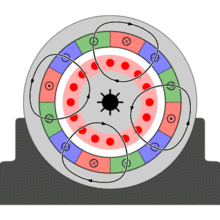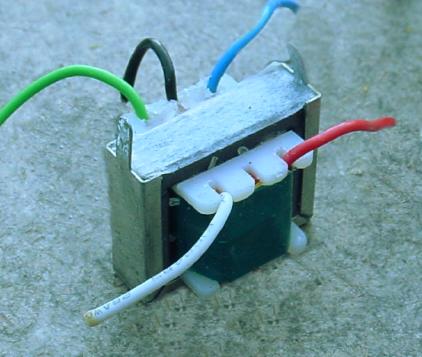Announcement
Collapse
No announcement yet.
Splitting The Positive
Collapse
X
-
Just for the record... Thane's requirement of a high impedance coil is false, as Erfinder has said for years, Just to confirm Erfinder here is a 11 mH, 1.2 ohm coil accelerating under load... just about any coil will.Originally posted by BroMikey View Post[FONT="Comic Sans MS"][COLOR="Red"]Thanks .
Making lots and lots of coils experiments. Wind them up quite long and
begin removing a 10 foot section of wire and retest. So you see Dave
has already made the common deduction and has stated for the record
as any experiment should well know that each setup will require a
different coil.
https://youtu.be/Z_cHxFwqy4M
Ron
Comment
-
Originally posted by i_ron View PostJust for the record... Thane's requirement of a high impedance coil is false, as Erfinder has said for years, Just to confirm Erfinder here is a 11 mH, 1.2 ohm coil accelerating under load... just about any coil will.
https://youtu.be/Z_cHxFwqy4M
Ron
Thanks Ron, keep it coming, great video's, good pointers. ER did say
something any that but I forget fast. I really like your stuff because
you don't hide what you know.
Comment
-
Originally posted by TurionI_ron,
YOU are correct. A high impedance coil is NOT necessary. It's just the easy way out. We were told THAT over 120 years ago, and I don't think erfinder is that old. LOL. My coils are NOT high impedance either. That kind of coil puts out voltage but NO amps. Not really what you want for a generator. And by the way, Thane does NOT say that ONLY high impedance coils will work. But he does say that high impedance coils WILL work. He has coils that are NOT high impedance that will work too. There are several factors to consider when you want coils to speed up under load. I tried to start a thread on that, but people who contributed had their own agenda, so I gave it up. Now I'm just doing my own thing and building my own stuff, and eventually I will probably post some things here when I have everything done the way I want it.
Dave
Awesome Dave, where the hell have you been?
I missed you while you were gone. Vacation hey? Well it
Vacation hey? Well it
must be nice doing something new for a change, hope you enjoyed
your once in a lifetime get away.
Here is what I would like to add to your comment as everything you
said is right on as always. Here is my comment:
"HIGH IMPEDANCE" relative to what? Look at this chart

This is one of those slow moving (1100rpm) box fans. Now if I do an
ohm check on my scooter motor with a 100 turns (6" per turn Approx?)
of 20awg magnetwire is like 9 ohms per 1000.
Comes out to a half of ohm, so a 1.5 ohm coil is triple or a very
high impedance coil to my small motor. In the case of the bench
grinder motor Thane is using I think is 1 ohm? Something like this
a very low impedance.
I saw Thane do a video calling a 3-4 ohm coil a regenx coil and said
it wasn't a high impedance coil by many standards, however still many
multiples higher than the grinder motor.
Running at 3600 rpm's not 1/3rd this or less at the 1100 rpm figure
very significant.
Last edited by BroMikey; 03-30-2017, 02:47 AM.
Comment
-
To understand the relationship of resistance and inductance
at a certain frequency to find the impedance values we must
cover a few thoughts on conventional designs.
In a synchronous motor, the rotors rotate at a speed similar to the speed of a magnetic field, or stator field, while asynchronous motors have the rotor running at a slightly slower speed than that of the induced magnetic field. Synchronous motors can be found in dryers, fans and the axles of off-road vehicles.
https://en.wikipedia.org/wiki/Induction_motor

Slip
Slip, s s, is defined as the difference between synchronous speed and operating speed, at the same frequency, expressed in rpm or in percent or ratio of synchronous speed. Thus
In our case number of magnets and magnet to coil core material gap
answer a lot of questions on what impedance may be needed.
A good way to address coil impedance is to look at contactor cores
vs motor coil core impedance. A contactor (LARGE RELAY) will have
a very high resistance and at the inductive value at that frequency
will be a high impedance also. Some at 50 ohms.
When the coil of a contactor is switched on if the wire is not long
enough at that voltage it over heats and burns out.
In the case of a motor there is some slippage between fields that
translates into mechanical movement allowing for a much shorter
coil wind. Unlike a solenoid, relay or contactor the energy is not
trapped in one small area.
In the motor coil the slip between the rotating gap energy escapes
into rotational force and the current does not burn out the coil even
thought it may be only 2 ohms and operate at 1 amp.
In our case we are gapping the rotor and core material at say 3/8'
or .333 thousandths of an inch while the common motor has only a
.010-.020 thousandths of an inch gap.
Tesla and others have shown how extending the core material way
beyond the coil causes a delay as well as the larger gaps.
So so many variables. Number of magnets, size of magnets, proximity
of magnets passing core material. Coil stored energy magnetically
stored energy electrostatically.
The delay on the scope is what we are looking for. Like Dave said
if the wire is to long and to thin the output is small as it can also
only provide a set amount of rotor assistance.
A balance must be found by each individual's design. One coil can only
offer so much rotor assisting force so coils must be wound and re-wound
to find the optimum output electrically vs foreword stored energy
thrust propelling the rotor.
This is the goal.
Comment
-
Splitting the positive using a 3 battery differential powering
connection for the prime mover and THEN add a rotor to that
prime mover motor that has magnets to collect what would
otherwise be wasted mechanical. Following the work of THANE HEINS
coils can be wound to help the rotor action relieving the burden
on the input while producing usable power.
This is done with a Bifilar Coil. Here is a video explaining the
standard VS Bilfilar coils capacitance, inductance changes.
16 - 40 times the value change for the same mass of wire.
https://www.youtube.com/watch?v=uNAZ6heorEc

Comment
-
First let me say thank you to the guys in the other thread on
BIFILAR COILS.
Here is another example of using a BIFILAR COIL to speed up the drive
motor and at the same time delivering power. This is the basic setup.
https://www.youtube.com/watch?v=vAXQBpuLu68

Comment
-
Thanks ET
Has anyone really seen any elephant tracks lately?
Bifilar experiment here on earth.
https://www.youtube.com/watch?v=PxcS0oYsBG4

Comment
-
Let's review the Bifilar but first the inventor, then some math.
http://www.rmcybernetics.com/science/physics/electromagnetism2_coils.htm

Very very old engineering math dug up from the dungeons of 1940.
Seems like a huge shock to our generation of plug and play software.
Must be another world.
Radio used bifilars early on. Have a look.
http://nvlpubs.nist.gov/nistpubs/jres/24/jresv24n6p597_A1b.pdfLast edited by BroMikey; 04-11-2017, 10:55 AM.
Comment
-
Experiment shows how a standard transformers impedance
will disappear when connected BIFILAR and tuned. Listen to him
say he opened the conventional transformer and separated the
standard winding on the low side. Alter yours today, no
waiting.
No speculation just hard data, no free energy lesson just
raw data for those who can wrap their minds around.
Bifilars connect in series change everything. A real test so
we are not sitting on our hands in a hypnotic state.
https://www.youtube.com/watch?v=h11XJwx_ac4
 Last edited by BroMikey; 04-11-2017, 11:24 AM.
Last edited by BroMikey; 04-11-2017, 11:24 AM.
Comment
-
-
Originally posted by TurionVideos of people building coils that speed up under load are popping up on the internet like popcorn, yet no one has shown the modified motor running on the 3 battery circuit turning a rotor past some coils (that speed up under load) to produce MORE energy than is used. Is it because we have no builders here, just talkers? YOU HAVE NO EXCUSES!!! Everything you need to know is out there.
Amen Hallelujah
Did you know all of this? I didn't. Wow there is so much to go over.
My project is evolving. I have mounts left to do then the fun begins.
Many coils are speeding up under a load on youtube.
Soon this will be the new Bedini rave.
First, let us review the bifilar diagrams and remember that the gain
for a standard solenoid coil VS the same coil mass wound bifilar is
way low. Capacitance 16 times lower, and inductance 100X lower
the list goes on.
Unless these ideas are noticed it is my belief others won't take this
seriously. Look at this guy going slow and teaching in a manner that
is effective.
We all have our individual gifts.
You see prior to this week I was under a false impression that Bifilars
had maybe 1.5 times value shift data but now i see the possible wide
range of tuning possible making the coil it's own cap for any desired
RPM or frequency.
https://www.youtube.com/watch?v=xHDrmGPY-78

Comment
-
The New Bedini Rave is here
If you are going to build a generator coil that "N" and "S" alternating
magnets are passing by, consider this data. If you do not see the
significance of the changing coil perimeters between regular coils
and bifilar coils I feel sorry for you.
Talk about tuning inductance to capacitance looking at these
formations and what do you see? Or are you all blind men?
Or are you all blind men?
With this page you should now be able to understand that a coil of
wire wound multi-layers can be done that lowers impedance, increases
voltage with lower frequencies and much more.
Look at this page "look hard" then comment. Can you see how a 100
times change to the various will effect the math?
This page corresponds to the video below for those who can not
understand what was said. Now, what do you think?
I know what I think, I think multi-layers and multi- strands just
like John bedini taught us. Although John used his Bifilars different
he was right on for using them.
https://www.youtube.com/watch?v=uNAZ6heorEc

Originally posted by BroMikey View PostSplitting the positive using a 3 battery differential powering
connection for the prime mover and THEN add a rotor to that
prime mover motor that has magnets to collect what would
otherwise be wasted mechanical. Following the work of THANE HEINS
coils can be wound to help the rotor action relieving the burden
on the input while producing usable power.
This is done with a Bifilar Coil. Here is a video explaining the
standard VS Bilfilar coils capacitance, inductance changes.
16 - 40 times the value change for the same mass of wire.
https://www.youtube.com/watch?v=uNAZ6heorEc
 Last edited by BroMikey; 04-12-2017, 06:51 AM.
Last edited by BroMikey; 04-12-2017, 06:51 AM.
Comment
-
permission to ask a question here
Mikey
I cannot watch videos too easily ,but I have a question
if both coils have a total 100 feet of wire ,one single wrap another Bifiler
are you stating that DC resistance will be half in the 100 feet of Bifiler
as apposed to the 100 feet in a mono wound coil
same length of wire ...half the DC resistance ??
I will delete this comment if I misunderstood
or at your request
respectfully
Chet KLast edited by RAMSET; 04-12-2017, 07:55 PM.If you want to Change the world
BE that change !!
Comment



Comment